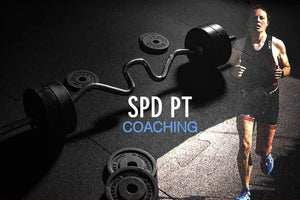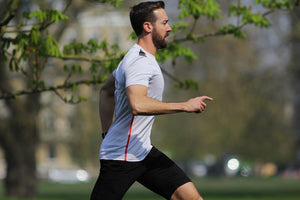
It’s been a long-contested subject that has divided opinion amongst the triathlon community. Many people make the argument that strength is not important for triathletes, and that weight training will actually make you heavier, thus slower.
However, over recent years many myths surrounding resistance training using weights have been debunked. More and more professional endurance athletes have dedicated strength and conditioning coaches. There are many benefits to resistance training, but not all are obvious.
Injury Prevention
Triathlon is a demanding endurance sport that can put high loads on muscles and connecting tissue. If not sufficiently conditioned, these structures can break down leading to injury. Weight training using loads that are higher than experienced during regular training can help strengthen these structures preventing injury.
Higher Efficiency = Better Performance
Resistance training specifically targeted towards maximal, reactive and explosive strength has been shown to increase endurance performance through increased tendon stiffness and various neuromuscular pathways.
Ultimately, your tendons become better at storing and releasing energy and your nervous system becomes more advance/efficient at controlling your muscles.
Stronger Doesn’t Necessarily Mean Bigger
Yes, certain forms of weight training under particular conditions can make you gain muscle. However, putting on muscle is a lot harder than you might expect.
For muscle growth to occur, you need to do a lot of lifting at a fairly high load and be in a constant calorie surplus. For most triathletes, this is never going to be the case. A correctly put together strength and conditioning programme will minimise physiological adaptions such as muscle hypertrophy.
Also, doing a lot of endurance exercise can suppress muscle synthesis, so if you’re a triathlete with a packed endurance schedule, I wouldn’t worry.

Remove Weakness
To become a good endurance athlete you need to put in the training hours. This means doing a lot of the same movements over and over again.
The problem with this is that the body can develop muscle imbalances, where the main muscles used become strong but the less utilised muscles remain weak. This can cause imbalances and is often a prime cause of injury.
By incorporating some different movement patterns into your training programme, you can address areas of potential imbalance. This will not only help prevent injury but also make you a more rounded athlete.
Conclusion
Modern sports science has shown that a well-constructed strength and conditioning programme using weights can have a positive effect on endurance performance. Endurance athletes should no longer fear the weights room, they should positively embrace it. Lifting heavy weights following specific protocols will not make you bigger, but it will make you stronger, more resilient and faster. However, if you’re new to weight training you should seek professional advice otherwise you could do more harm than good.
Read more: Triathlon Strength Training Exercises
Matthew Sills is the Founder and Head Coach of Trojan Fitness having been a personal trainer in Ruislip since 2013. Matthew holds a BSc in Sport and Exercise Science from the University of Surrey, and guides his personal training based on the latest scientific research and literature.


























